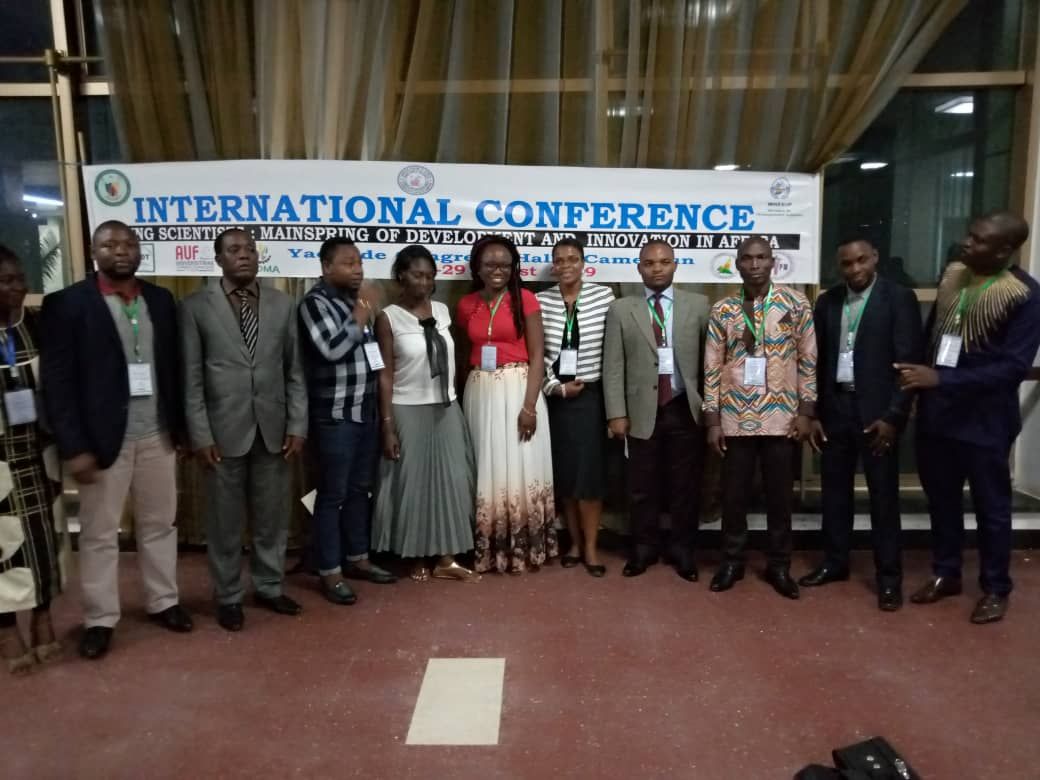The Cameroon Academy of Young Scientists (CAYS) was established in 2019, with the kind support of the Cameroon Academy of Science (CAS). As their very first activity, CAYS organised an international conference on “Young Scientists: Mainspring of Development and Innovation in Africa” in Yaoundé, Cameroon, in August 2019. The conference focused on looking into how young scientists and the young academy can impact the scientific environment in Cameroon and in the Central African sub-region with a new way of thinking, of mobilising intellect and of enabling science for societal development and the emergence of low- and middle-income countries.
The conference was preceded by a two-day, sub-regional workshop on science advice to governments, which was co-organised with the Fonds de Recherche du Québec and the African Chapter of the International Network for Government Science Advice (INGSA).
Both events were aimed at building the capacity of participants for science advice and present research results and find ways to use these for better informed decision making and appropriation of public policy. The conference enabled the academy to consolidate and put in place a platform for scientific networking comprising all fields and disciplines. It offered a platform for information and training to participants from Cameroon, Chad, the Central African Republic, Congo Brazzaville, Democratic Republic of Congo, Gabon, Ivory Coast, Togo and Canada. This platform also enabled participants to identify challenges faced by young scientists in the quest for effective development. Selected participants from government, research institutions and civil society took part in both the conference and the workshop. A total of 153 papers (55 oral presentation and 98 posters) were selected for the conference. The papers were presented during four sessions under three main themes: 1) Nutrition, Health and Environment; 2) Material Science, ICT and renewable energy; 3) Digital Economy, Peace and Development.
The following recommendations were made:
- Organize capacity for science advice at local level with organizations directly involve in decision making
- Improve scientific communication competences in young scientists
- Encourage international mobility of young scientists
- Encourage interdisciplinary and multi-institutional collaboration among young scientists
